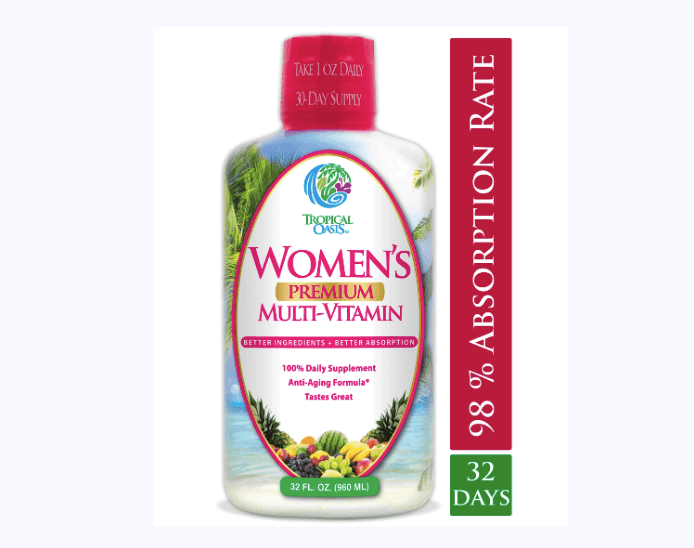The Best Vitamins to Lower Cholesterol


Cholesterol is a waxy substance that travels in your bloodstream through carriers called lipoproteins. Typically, when we hear about managing cholesterol, we are being told that we need to lower it, but it is important to note that cholesterol is not in itself bad. There are actually two types of cholesterol: low-density lipoprotein (LDL) and high-density lipoprotein (HDL).
The “bad” type of cholesterol is LDL because it contributes to fatty build ups in arteries (atherosclerosis) that feed the heart and the brain. According to the American Heart Association (AHA), high levels of LDL increase a person’s risk for heart attack, stroke, and peripheral artery disease, so the lower the levels of LDL in your bloodstream the better.
The “good” type of cholesterol is HDL. According to consensus among medical professionals, HDL actually acts as a preventative process against fatty build-ups in the arteries. When HDL is in the bloodstream it latches onto LDL (the bad cholesterol) and carries it to the liver where the LDL is broken down and removed from the body. For this reason, higher levels of HDL in the bloodstream can help reduce your risk of cardiovascular disease. Unfortunately, simply having high HDL levels cannot solve all cholesterol related problems. High HDL levels cannot completely eliminate the LDL cholesterol in your bloodstream since only one-third to one-fourth of blood cholesterol is carried to the liver by HDL.
Another important factor to consider when it comes to your cholesterol is the level of triglycerides in your bloodstream. Triglycerides are the most common type of fat in your body, and while normal levels of triglycerides will vary by age and gender, high triglycerides are linked to obesity, a sedentary lifestyle, drinking alcohol in excess, and consuming a high-carbohydrate diet. The American Heart Association and the Center for Disease Control (CDC) contend that a high triglyceride level combined with a high LDL (bad) cholesterol and low HDL (good) cholesterol increases the risk of fatty build up in the arteries, increasing a person’s risk for heart attacks and strokes.
According to the CDC, more than 73 million Americans have high LDL levels and less than a third of people are doing something about it, most likely due to the fact that high cholesterol levels have no obvious symptoms and require a blood test to determine the levels of cholesterol in the bloodstream. Given that over a third of all deaths in the United States are due to various heart diseases and your cholesterol levels are a huge contributing factor to your heart health, maintaining healthy cholesterol levels has never been more important.
It is no secret that managing cholesterol can be a tricky business. Luckily, we are here to help. In this article, we will go over some of the risk factors for high LDL cholesterol levels. After this, we will focus on how to prevent high cholesterol by giving you information on some lifestyle changes and great foods and vitamins to lower your cholesterol.

Risk Factors for High Cholesterol
1. Poor Diet:
One of the greatest factors when it comes to your cholesterol levels is your diet. According to the Mayo Clinic, eating foods that are high in saturated fat, such as fatty cuts of beef, pork, and lamb, dark chicken meat, high-fat dairy foods, such as whole milk, butter, cheese, sour cream, and ice cream, and various tropical oils, such as coconut oil, palm oil, and cocoa butter can severely increase the amount of LDL in your bloodstream. Other foods to avoid or at least eat in moderation are those high in trans fat, such as various backed goods, fast food, snack foods (i.e. popcorn), and coffee creamer.
2. Obesity
Obesity is another large factor when it comes to your cholesterol levels and heart health. Those with a body mass index (BMI) of 30 or greater are at risk of high cholesterol.
3. Lack of Exercise
The widespread benefits of regular exercise are well known. Regular physical activity is known to reduce your risk of heart attack, help you manage your weight, lower blood pressure, lower the risk of type-2 diabetes and some cancers, and increase the strength of your bones and muscles. On top of all of that, exercise also improves your cholesterol levels in a twofold manner.
Firstly, it boosts the amount of HDL (good) cholesterol in your body. This of course indirectly decreases your LDL (bad) cholesterol levels since HDL helps remove LDL from the bloodstream. Secondly, it increases the size of the particles that make up your LDL cholesterol, which makes the remaining LDL cholesterol less harmful.
4. Smoking
Smoking cigarettes damages the walls of your blood vessels, making them more prone to the accumulation of fatty deposits. Additionally, some research suggests that smoking might actually lower your levels of HDL (good) cholesterol.
5. Age
While young people do not completely avoid the risk of high cholesterol levels (according to the CDC, seven percent of adolescents aged six to nineteen have high total cholesterol), your cholesterol-related risks increase as your age increases. Part of the main reasons for this is that as you increase in age, your liver becomes less able to remove LDL cholesterol from your bloodstream.
6. Diabetes
High blood sugar is an extremely relevant factor when it comes to managing cholesterol levels. High blood sugar contributes to high levels of a dangerous variant of low-density lipoprotein (LDL) called very-low-density lipoprotein (VLDL) and also lowers HDL cholesterol. Additionally, high blood sugar, like smoking, damages the lining of your arteries, making them more susceptible to fatty build-ups.
Lifestyle and Dietary Recommendations for Your Cholesterol
Now that we know the most prevalent risk factors when it comes to high cholesterol, we can move on to some great lifestyle and dietary changes that can help reduce your LDL and increase your HDL cholesterol levels. Many of these will involve reversing the risk factors enumerated above.
1. Exercise Regularly
As we briefly touched on above, regular exercise is one of the best ways to improve your cholesterol since it raises your HDL levels and simultaneously reduces your LDL and triglyceride levels in your bloodstream. For the best effects, it is recommended that you try to work out for at least 30 minutes, 4 to 6 times a week and that you consult a doctor when you are coming up with your workout plan.
2. Lose Weight (if you are overweight)
As we noted above, being overweight can lower your HDL levels and increase the LDL and triglyceride levels in your bloodstream. In general, if your body mass index (BMI) is between 18 and 25, you are at a normal weight and are in the safe zone when it comes to the way that your weight interacts with your cholesterol levels. If your BMI ranges from 25 to 30, you are considered overweight, and if your BMI is over 30, then you are considered obese.
Losing weight, even just 5 to 10 pounds, can significantly lower your total cholesterol level, and there are a number of ways that you can go about doing this. Working out regularly is a great way to lose weight, especially if it is combined with a healthy diet that avoids foods high in saturated and trans fats and sugar and integrates weight-loss-friendly foods that are high in protein and fiber, such as fruits, vegetables, nuts, whole grains, and yogurt. Additionally, Tropical Oasis offers an incredible weight loss formula called Sleep-A-Weigh Plus that can help you get a great night’s sleep and lose weight at the same time.
3. Quit Smoking
Given the harmful effects that smoking has on the lining of your arteries and that it lowers your HDL levels, quitting smoking can be a great way to improve your cholesterol.
4. Eat A Heart Healthy Diet
Eating a diet that is healthy for your heart can work wonders for your cholesterol levels. You will want to eat a diet that is high in fruits, vegetables, and other fibrous foods like whole grains and nuts while avoiding saturated and trans fats in foods like butter, fatty animal foods, and high-fat dairy products.
A great way to improve the heart healthiness of your meals is to use healthy cooking methods. For example, before you cook any meat or poultry, trim the fats or the skin before cooking. Additionally, baking, broiling, and roasting are healthier methods of cooking than frying your food.
5. Take Supplements that Help Lower Your Cholesterol
There are a number of supplements and vitamins to lower cholesterol. Stay tuned because the next section is all about the best vitamins to lower cholesterol!

Best Vitamins to Reduce Cholesterol
Now that we know the risk factors associated with high total cholesterol levels and some of the lifestyle changes we can make to improve our HDL and reduce our LDL, it's time to move on to one of the most important sections of this article, which is the various vitamins and dietary supplements that people can take to improve their cholesterol. We live busy lives, so it is not always easy to get enough exercise or cook the perfect heart-healthy meals, so many people will take vitamin supplements to carry some of the load. Even if you are exercising enough and cooking healthy meals, these vitamins can be the cherry on top of your cholesterol-improving routine for the best results.
1. Niacin
Niacin, also known as vitamin B3, is part of the B-complex that also includes thiamine (B1), riboflavin (B2), pantothenic acid (B5), pyridoxine (B6), biotin (B7), folate (B9), and cobalamin (B12). Together, the B vitamins play important roles in energy production, weight maintenance, and maintaining overall health, but Niacin is especially well known for its benefits to cholesterol levels in addition to its role in proper metabolization, proper nervous system functioning, and antioxidant protection.
There are a number of reasons that people with cholesterol trouble often take niacin. Firstly, niacin helps boost levels of healthy HDL cholesterol. Additionally, niacin has been shown to lower triglyceride levels and moderately lower the overall levels of LDL in the bloodstream.
The recommended daily allowance (RDA) for niacin is 16mg per day for men and 14 mg per day for women. You can get niacin through consumption of poultry like chicken and turkey, as well as nuts, whole grains like brown rice, whole-wheat foods, and vegetables, such as mushrooms and green peas.
Many people, especially those concerned with getting enough niacin to help lower their cholesterol, will get their niacin through niacin dietary supplements or through great full B-complex supplements, such as Tropical Oasis’ Premium Liquid B-Complex liquid vitamin to get the benefits of niacin along with all the benefits from the other B vitamins. Of course, if you prefer efficiency, then choosing the right multivitamin, packed with vitamins and nutrients with benefits spanning across all areas of general health, could be enough to get a sufficient niacin intake.
2. Psyllium
Psyllium is a soluble fiber derived from the seeds of Plantago ovata, a herb primarily grown in India. Although it is usually taken as a dietary supplement in the form of husks, granules, capsules, and powders, you can also get at least some psyllium fiber through certain fortified breakfast cereals and baked goods.
If you are looking to improve your cholesterol levels, psyllium is certainly an ingredient that you will want to keep your eyes one since it is one of the most well-studied cholesterol dietary supplements available. Psyllium is able to bind to fat and bile acids, which promotes the excretion of bile acids from your body. In the process of replacing these lost bile acids, the liver uses cholesterol to produce more. As a result, blood cholesterol levels decrease. For example, one study showed that when 47 healthy participants took 6 grams of psyllium each day for six weeks, their LDL cholesterol level decreased by 6 percent.
In addition to decreasing levels of LDL, Psyllium has also been shown to increase levels of HDL cholesterol, especially for diabetic patients. One well-regarded study showed that participants with type-2 diabetes who took psyllium for 6 weeks saw up to a 45 percent increase in HDL levels.
Beyond its great benefits for managing cholesterol levels, psyllium has also been shown to lower blood sugar levels, and as we noted earlier, high blood sugars increase the amount of very-low-density lipoprotein (VLDL) in the bloodstream, so psyllium also has this indirect benefit for better cholesterol as well.
3. Red Yeast Rice
Red yeast rice is white rice that has been fermented with yeast, and it is a medicine that has been widely used in China. Some red yeast supplements have been shown to lower cholesterol because they contain monacolin K, an ingredient that has the same chemical makeup as the popular cholesterol-lowering medicine, lovastatin. In the United States, it will not be possible to find red yeast supplements containing monacolin K, since the FDA ruled that monacolin K was a medicine that could not be sold as a supplement. However, for those living outside of the United States, these may be a good option, though you may want to watch out for possible side-effects.
4. Omega-3 Fatty Acids
There is strong evidence suggesting that omega-3 fatty acids (DHA, EPA, and ALA) often found in fish oil supplements can have significant benefits for cholesterol levels in addition to numerous benefits to overall heart health.
Research shows that eating dietary sources of fish oil, such as tuna or salmon, at least twice a week is associated with reduced risk of developing heart disease and that taking fish oil supplements for at least six months has been shown to reduce the risk of heart-related events (such as heart attacks) and death in people who are at a high risk of heart disease. Additionally, omega-3 fatty acids have been tied to a mild reduction in blood pressure levels for those who take fish oil supplements.
Most importantly for our purposes, there is strong evidence to suggest that omega-3 fatty acid supplementation can produce significant decreases in blood triglyceride levels and a slight improvement in HDL (good) cholesterol levels.

Looking Forward to Reducing Your Cholesterol
High cholesterol is an issue that millions of Americans deal with, but luckily, there a number of ways that you can prevent the harmful effects of high levels of LDL cholesterol in your bloodstream. Since there are no symptoms of high cholesterol, it is important that you go to your doctor and get your cholesterol tested, especially if you fit any number of the risk factors, such as eating a poor diet filled with saturated fats and trans fats, being overweight, living a sedentary lifestyle without regular exercise, smoking cigarettes, being past adolescence, or having diabetes.
Luckily, there are many things that you can do to lower your cholesterol and avoid the risks. Of course, lifestyle changes like exercising regularly, eating healthily, and losing weight are great ways to boost your HDL cholesterol and lower your LDL cholesterol. On top of that, getting the right amount of vitamins to lower cholesterol, either through food sources or through dietary supplementation is an essential step in reaching your health goals.



